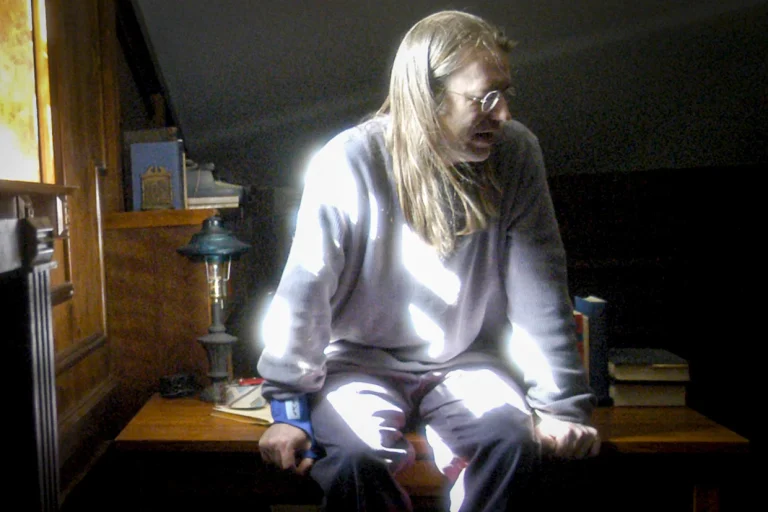Renowned author Caleb Carr, whose life was woven with threads of literary legacy, personal strife, and a profound connection with feline companionship, passed away at the age of 68 in New York City. Born into a tapestry of cultural significance as the son of Beat poet Lucien Carr, Caleb Carr’s journey through life was marked by both triumphs and tribulations, ultimately leaving an indelible mark on literature, history, and the hearts of those who knew him.
Carr’s upbringing was shadowed by the tumultuous legacy of his father and the bohemian circles of Beat luminaries like Jack Kerouac and Allen Ginsberg. Yet behind the scenes of literary greatness lay a darker reality — one of fear, trauma, and instability. Lucien Carr, once a central figure in the Beat movement, cast a haunting presence in his son’s life, his past marred by a conviction for manslaughter and his actions marked by violence and unpredictability. For Caleb, childhood was a battleground, a terrain where fear and uncertainty reigned supreme.
From the crucible of his upbringing emerged a writer with a profound aversion to violence, an insatiable curiosity about the human psyche, and an unyielding commitment to unraveling the mysteries of cruelty. In his seminal work, “The Alienist,” set amidst the gritty backdrop of 1890s New York City, Carr masterfully blended historical fact with fictional intrigue, exploring not only the identity of a killer but also the complex motivations that drive human behavior. It was a testament to Carr’s prowess as a storyteller and his deep-seated understanding of the human condition.
“The Alienist” catapulted Carr to literary stardom, paving the way for a series of successful novels and establishing him as a preeminent voice in historical fiction. Yet amidst the accolades and acclaim, Carr’s contributions as a military historian often took a backseat. His scholarly pursuits, including teaching at Bard College and collaborating with esteemed colleagues, were overshadowed by the allure of his fictional creations.
However, Carr’s foray into nonfiction was not without controversy. His analysis of terrorism and military strategy drew both praise and criticism, with some questioning his authority on the subject. Undeterred, Carr remained steadfast in his convictions, defending his scholarship with characteristic tenacity and wit.
In the twilight of his life, Carr found solace and companionship in the form of a half-wild rescue cat named Masha. Their bond transcended words, a silent understanding forged through years of shared experiences and unwavering devotion. As Carr grappled with his own mortality, Masha stood as a symbol of unconditional love and acceptance, a testament to the healing power of companionship.
In his final memoir, “My Beloved Monster,” Carr immortalized their bond, offering a poignant reflection on love, loss, and the enduring legacy of connection. Through his words, Carr invited readers into a world where the love of a cat could mend even the deepest wounds of the soul.
With Caleb Carr’s passing, the literary world has lost a singular voice, a master storyteller whose words will continue to resonate for generations to come. Yet amidst the sorrow of his departure, his legacy endures — a testament to the power of resilience, the pursuit of knowledge, and the unbreakable bond between a writer and his beloved companion.

